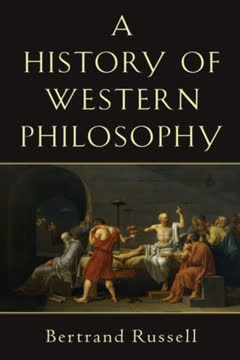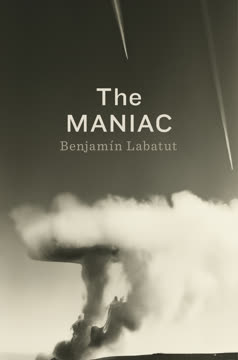Key Takeaways
1. Knowledge Grows Through Bold Conjectures and Critical Error Elimination
knowledge proceeds by way of conjectures and refutations.
Trial and error. The growth of knowledge, both in science and generally, is fundamentally a process of trial and error. We propose tentative solutions (conjectures or hypotheses) to problems and then actively seek to find flaws and eliminate errors through criticism and testing. This iterative process of proposing and eliminating allows us to learn from our mistakes and make progress.
Beyond observation. Contrary to traditional empiricism, knowledge does not begin with passive observation or the accumulation of sense data. Observations and experiments play a crucial role, but primarily as tools for criticizing and testing our theories, not as their ultimate source or justification. The initial stage of conceiving a new idea is often an irrational or creative intuition, not a logical process.
Critical tradition. The key to this growth lies in fostering a tradition of critical discussion. This involves being open to new ideas, no matter how bold, and subjecting them to rigorous scrutiny. It requires a willingness to admit ignorance and fallibility, recognizing that all knowledge is conjectural and open to improvement.
2. Scientific Knowledge is Objective, Residing in a "Third World" of Ideas
Knowledge in the objective sense is knowledge without a knower : it is knowledge without a knowing subject.
Three worlds. Popper distinguishes three worlds: World 1 (physical objects and states), World 2 (subjective mental states and consciousness), and World 3 (objective contents of thought, theories, problems, arguments, and cultural artifacts). Scientific knowledge belongs primarily to World 3.
Autonomous reality. World 3 objects, such as theories or mathematical proofs, are abstract but real. They are human creations, but once created, they exist independently of any individual's subjective belief or knowledge and have their own inherent properties and relationships (like logical consistency or inconsistency). They can also exert causal influence on World 1, but typically mediated through World 2.
Beyond subjective belief. Traditional epistemology often focuses on subjective knowledge (what an individual believes or knows). However, understanding the growth of scientific knowledge requires studying World 3 – the objective problems, theories, and arguments themselves – which exists "without a knowing subject."
3. Falsifiability is the Criterion Distinguishing Empirical Science from Non-Science
my proposal was, and is, that it is this second boldness, together with the readiness to look out for tests and refutations, which distinguishes ‘empirical’ science from non-science, and especially from pre-scientific myths and metaphysics.
Testability is key. Empirical science is characterized not by its ability to be proven true (verified), but by its capacity to be proven false (falsified). A scientific theory must make bold predictions that, if incorrect, could potentially clash with observable facts.
Demarcation, not meaning. Falsifiability serves as a criterion of demarcation between empirical science and non-science (including metaphysics and pseudoscience), not as a criterion of meaning. Metaphysical theories are often irrefutable, but they can still be meaningful and even inspire scientific research.
Avoiding immunization. Scientists must adopt methodological rules that forbid immunizing their theories against refutation through ad hoc hypotheses or other evasive tactics. While some degree of dogmatism is necessary to fully explore a theory, the core scientific attitude involves actively seeking out potential falsifications.
4. The Problem of Induction is Solved: Science Uses Deduction and Refutation, Not Induction
Induction is logically invalid; but refutation or falsification is a logically valid way of arguing from a single counterinstance to - or, rather, against - the corresponding law.
Hume's challenge. David Hume showed that it is logically impossible to justify inferring universal laws or future events from past observations, no matter how numerous. This posed the problem of induction, suggesting that scientific knowledge, if based on induction, is irrational.
Rejecting induction. Popper accepts Hume's logical critique of induction but rejects the idea that science relies on it. Instead, science operates deductively: theories are proposed as conjectures, and their consequences are deduced and compared with observations.
The power of refutation. While observations cannot prove a theory true, a single counterinstance can logically prove a universal theory false. Scientific progress comes not from accumulating confirming instances, but from eliminating false theories through rigorous testing and refutation.
5. The Aim of Science is Truthlikeness and Explanatory Power, Not Certainty or High Probability
if our aim is the advancement or growth of knowledge, then a high probability (in the sense of the calculus of probability) cannot possibly be our aim as well: these two aims are incompatible.
Beyond mere truth. Science seeks truth, but not just any truth. It aims for interesting truth, which means theories with high informative content and explanatory power. Such theories are logically improbable because they rule out many possibilities.
Verisimilitude. While we can never be certain that a theory is true, we can rationally assess whether one theory is closer to the truth (has higher verisimilitude) than another. This involves comparing their truth content (true consequences) and falsity content (false consequences).
Progress through testing. A theory that has survived severe tests, especially those that refuted its predecessors, is considered better corroborated and likely has higher verisimilitude, even if it is eventually shown to be false. The aim is to approach the truth, even if absolute certainty is unattainable.
6. Methodology, Not Just Logic or Observation, Guides Scientific Practice
empirical science may be defined by means of its methodological rules.
Rules of the game. Scientific method is not a fixed set of procedures derived from logic or observation, but rather a set of conventional rules or norms that scientists adopt to guide their research. These rules are designed to ensure the testability and progressiveness of science.
Beyond formal structure. Characterizing science solely by the logical form of its statements is insufficient. Methodology focuses on how scientists deal with theories – how they are proposed, tested, criticized, and replaced. This emphasizes the dynamic, critical aspect of science.
Avoiding dogmatism. Methodological rules, such as the rule against immunizing theories from refutation, are crucial for maintaining the critical attitude necessary for scientific progress. They are not rigid dogmas but are open to discussion and improvement based on their effectiveness in promoting the aims of science.
7. Realism is the Most Rational, Though Irrefutable, View of the World
I propose to accept realism as the only sensible hypothesis - as a conjecture to which no sensible alternative has ever been offered.
Independent reality. Realism is the view that a real world exists independently of our subjective experiences or minds. This is a fundamental tenet of common sense.
Irrefutable but arguable. Like idealism, realism cannot be definitively proven or disproven by logical argument or empirical observation. However, the weight of arguments strongly favors realism.
Arguments for realism:
- It aligns with common sense.
- Scientific theories, which aim to describe the world, presuppose realism.
- Human language, being descriptive and argumentative, is inherently realistic.
- Idealism, which suggests the world is merely our idea, appears absurd and megalomaniacal.
8. Social Science Should Pursue Piecemeal Engineering to Solve Concrete Problems, Rejecting Historicist Prophecy
What we need is not holism. It is piecemeal social engineering.
Historicism's flaw. Historicism, the view that social science should discover laws of historical development to predict the future, is fundamentally mistaken. There are no such laws; history is a unique process, and trends are not laws.
Piecemeal approach. Instead, social science should adopt a technological approach, focusing on "piecemeal social engineering." This involves designing and reforming social institutions through small, testable interventions aimed at solving specific, concrete problems (like poverty or unemployment), rather than attempting to remodel society as a whole.
Learning from mistakes. Piecemeal engineering is based on the method of trial and error. It emphasizes carefully comparing expected and actual results, learning from unintended consequences, and avoiding large-scale changes whose effects are impossible to disentangle and evaluate scientifically.
9. Democratic Institutions are Essential for Controlling Political Power and Safeguarding Freedom
The theory I have in mind is one which does not proceed, as it were, from a doctrine of the intrinsic goodness or righteousness of a majority rule, but rather from the baseness of tyranny; or more precisely, it rests upon the decision, or upon the adoption of the proposal, to avoid and to resist tyranny.
Avoiding tyranny. Democracy is defined not by majority rule as an ultimate good, but as a system of institutions that allows the ruled to remove rulers without bloodshed (e.g., through elections). This is the primary safeguard against tyranny.
Paradoxes of sovereignty. Any theory of unchecked sovereignty (rule by the best, the wisest, the majority, etc.) is paradoxical because the sovereign power could decide to abolish its own basis (e.g., a majority could vote for a tyrant). This highlights the need for institutional checks on power.
Control of power. Political power is fundamental and can control economic power. Therefore, democratic control of political power is the essential means for controlling economic power and protecting individual freedom from both political and economic exploitation.
10. Individualism, Emphasizing the Value of Individuals, is Compatible with Altruism, Unlike Collectivism
Collectivism is not opposed to egoism, nor is it identical with altruism or unselfishness.
Individual vs. Collective. Individualism asserts the moral value and rights of the human individual. Collectivism asserts the primacy of the group, state, or collective over the individual.
Plato's confusion. Plato mistakenly identified individualism with egoism (selfishness) and collectivism with altruism (unselfishness). This false dichotomy has historically served as propaganda against individualism.
Altruistic individualism. In reality, individualism is fully compatible with altruism. One can value and seek to protect the freedom and well-being of other individuals. Collectivism, conversely, can manifest as group egoism, where the collective pursues its own interests at the expense of outsiders or even its own members.
11. The Human Self Emerges Through Interaction, Especially with the Objective World of Ideas
I suggest
[ERROR: Incomplete response]
Last updated:
Review Summary
Popper Selections receives mostly positive reviews, with readers praising its accessibility and comprehensive overview of Karl Popper's philosophy. Many find his ideas on science, knowledge, and social philosophy intriguing and well-articulated. Some reviewers note the book's organization can feel disjointed due to its compilation nature. Critics point out potential contradictions in Popper's arguments, particularly regarding his epistemology and metaphysics. Overall, readers appreciate the book as an introduction to Popper's influential ideas, though some suggest starting with other works for newcomers.
Similar Books
Download PDF
Download EPUB
.epub digital book format is ideal for reading ebooks on phones, tablets, and e-readers.












